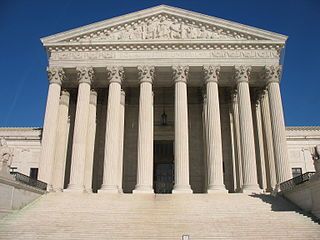U.S. Supreme Court Decision "Citizens United" Is Not Long For This World
OK, it was only #22 out of the top 25 victories in 2012 for progressive legislation, but at least it made the list. IMO, it’s the single most important, what its author dubs: “Challenging Citizens United.”
Peter Dreier is professor of politics and chair of the Urban and Environmental Policy Department at Occidental College, not too far from my home in Southern California. In this piece, he suggests that progressives are generally unsatisfied, “the glass is half empty” types of people – yet they should learn to wrestle with this aspect of their DNA and celebrate victories as they crop up. And, to be sure, one of these victories is the wickedly effective backlash that Americans have unleashed against the United States Supreme Court’s decision in the “Citizens United” case.
Dr. Dreier writes:
The Supreme Court’s Citizens United ruling in 2010 – equating money with free speech – unleashed a flood of money from billionaires and corporations, much of it through hard-to-trace “super-PACs” and so-called “social welfare” organizations. In the wake of that ruling, Montana Attorney General Steve Bullock defended his state’s Corrupt Practices Act, which banned corporate campaign funds, all the way to the Supreme Court. The court overturned the Montana law 5 to 4, undermining the ability of states and cities to restrict corporations from trying to buy elections. Although Bullock lost that fight, Montanans admired his populist ideals and elected him governor in November. That same day, Montana voters also supported Initiative I-166, which endorsed a constitutional amendment to overturn Citizens United, by a 74.8 percent margin. In Colorado, voters endorsed a similar ballot initiative, Proposition 65, with 73.8 percent of the vote. Voters in more than 120 cities and towns in Oregon, Colorado, Illinois, Wisconsin, Ohio, Massachusetts and California passed similar measures. Public opinion polls show that Americans overwhelmingly oppose Citizens United and believe that corporations, and corporate money, have too much influence in politics.
74.8 percent. Three out of four. The people have spoken. Citizens United is oppression, and it needs to go away.


Citizens United certainly creates problems, but let us be very careful in overturning it lest in doing so we create another problem. It is all too easy to make legal changes without giving adequate attention to possible unintended consequences.
I found this article which showed this person’s novel aproach to overturning the Citizen’s United ruling. He is going to try to do it through traffic court.
http://usnews.nbcnews.com/_news/2013/01/05/16372432-california-man-says-he-can-drive-in-carpool-lane-with-corporation-papers?lite&ocid=msnhp&pos=7
Simply overturning a Supreme Court ruling normally requires either a constitutional amendment or the Court to reverse itself. The Court rarely reverses itself. Perhaps the best known example of a reversal was the 1954 decision which reversed the 1896 Plessy vs Ferguson decision which had legalized racial segregation. Note that the reversal took 58 years.
Well some kind of ruling will have to be made here. Either corporations are people and this guy can keep riding in the HOV lanes with corporate papers in his passenger’s seat or corporations are not people and he has to pay the fine. Either way this will be interesting to follow. It will be interesting to see what the supreme court does with this if he can ride this case that far.
I actually think that a constitutional amendment may be possible after 2016. There will be a strong democratic majority in both houses of congress and a democratic president at that point… so it should be possible to get a 67% majority in both houses.
There is no possibility that can be foreseen at this point of there being a constitutional convention called. That means that any measure that does not first begin with 67% of both houses of congress is just arm waving. I wish it were different, but it’s not. People are too reverent of the constitution to risk a convention (the last time we had a constitutional convention we completely threw out the articles of confederacy… conventions don’t result in small changes).